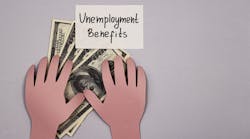Troubleshooter: Risk mad doctor and file for unemployment? Dentists’ obligations with benefits
A Troubleshooter about “forced” time off from work prompted follow-up questions from readers. “Can employees file for unemployment” was the most common. In this particular question, the hygienist feels she risks making the dentist angry if she does. Dentists want to know if they’re obligated to pay benefits when employees choose to move from full time to part time. Here's what HR expert Rebecca Boartfield with Bent Ericksen & Associates has to say about these issues:
QUESTION: I've been a full-time hygienist in this office for more than 14 years and I have 20 vacation/sick days. I've already used six days this year for bad weather or when the doctor decided to close the office. The dentist has a two-week planned vacation that could turn into four weeks coming up soon. Do I have a right to file for unemployment instead of using vacation time? I might need to take time off for my own schedule, but I’d have no vacation time remaining. In previous years we were told by office management that we weren't allowed to file for unemployment and that if we did, the doctor would be extremely mad. What penalties would the doctor entail if employees filed for unemployment?
ANSWER: If employees are not working either partially or fully during any workweek and are not receiving compensation for their time off, they may file for unemployment benefits. Employers are unable to prevent this action from happening. Whether or not employees receive those benefits is up to the state employment agency in charge of these matters.
Employers can force employees to use their vacation benefits during any time off that occurs. Therefore, employees may not be able to save up their time off to use at later dates if the employer does not allow that to occur. Once those vacation benefits are gone, or if there are not enough of them to cover for the entire time employees are off, then unemployment could be filed.
QUESTION: If a full-time employee who has been with our office for more than 10 years decides she wants to work part time for 32 hours a week, are we obligated to offer her any leave, insurance, or other benefits that we offer full-time employees?
ANSWER: Whether employers must provide employees with any benefits if they work less than what the employer defines as full time depends on each individual benefit and any particular plan requirements. If employers define full-time employment, for example, as 40 hours per week, and all policies regarding benefits state that only full-time employees working 40 hours a week can receive those benefits, then anyone working 32 hours a week could possibly be excluded.
This applies only to discretionary benefits such as vacation, paid holidays, and so on. For any benefits required by law, they cannot be excluded unless otherwise excluded by that law. For example, many states and cities have required sick leave laws that apply to all employees regardless of their status. Part-time employees, in this case, could not be excluded, however, depending on the state and the policies in place, the benefit could be slightly different.
This also would not apply to certain benefits that have their own rules, specifically, health insurance and retirement. Generally, health insurance is available to all employees who work 30-plus hours per week regardless of the employer's definition of full time. It is imperative to check with the health insurance carrier for those particular rules as each plan is different.
The same applies to retirement plans. These plans often require anyone who works 1,000 hours in a year to be eligible. (Other eligibility rules apply also.) Again, checking with the carrier that sponsors the plan is the best course of action since there are several different options for retirement plans and each may have different eligibility criteria.
MORE TROUBLESHOOTERS
Can dentist ask patients about vaccine status?
Must employees be paid during 'forced' week off?
Is dentist harassing staff by asking them to watch hours of consulting videos?
Don't be shy! If YOU have a tough issue in your dental office that you would like addressed, send it to [email protected] for the experts to answer. Remember, you'll be helping others who share the same issue. Responses will come from various dental consultants, as well as other experts in the areas of human resources, coding, front office management, and more. These folks will assist dental professionals with their various issues on DentistryIQ because they're very familiar with the tough challenges day-to-day practice can bring.





